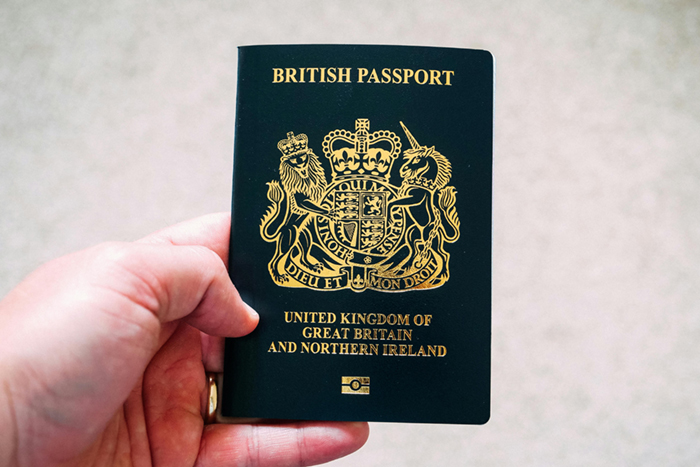What Are E-Passports?

An e-passport, or biometric passport, is a travel document embedded with an electronic chip that contains the holder's personal information, including biometric data like fingerprints and facial recognition. This technology enhances security and expedites the identification process at border controls. Introduced in the UK in 2006, e-passports have become standard for British citizens, facilitating quicker and more secure international travel.
Recent Developments Impacting UK Travellers
1. EU Entry/Exit System (EES) Launch
Starting in October 2025, the European Union will implement the Entry/Exit System (EES), a digital border control mechanism designed to register non-EU nationals entering and exiting the Schengen Area (see below). This system will replace manual passport stamping with biometric data collection, such as facial scans and fingerprints, enhancing security and streamlining border crossings. UK travellers, now considered third-country nationals post-Brexit, will be subject to EES procedures when visiting EU countries.
The Schengen Area is a group of 27 European countries that have abolished internal border controls, allowing people to travel freely between them without passport checks. It functions as a single jurisdiction for international travel, with a common visa policy. Countries in the Schengen Area include most EU nations, as well as a few non-EU states like Norway and Switzerland. The area enhances mobility, tourism, and trade across Europe, but also relies on strict external border controls and shared security systems. The UK is not part of the Schengen Area, meaning British travellers must undergo border checks when entering member countries.
2. Use of E-Gates in the EU
A new UK-EU agreement will soon allow British passport holders to use e-gates at more European airports, streamlining the entry process and reducing long queues at border control. Currently, e-gate access is limited to select airports in Spain and Portugal. With the launch of the EU’s Entry/Exit System (EES) in October 2025, more airports are expected to grant e-gate access to UK citizens.
3. Introduction of the Electronic Travel Authorisation (ETA)
From January 2025, the UK will require visitors from visa-exempt countries, including the United States, Canada, and Australia, to obtain an Electronic Travel Authorisation (ETA) before entering the country. The ETA is a digital permission to travel, not a visa, and will be valid for multiple entries over two years or until the traveller's passport expires. British and Irish citizens, as well as individuals with status under the EU Settlement Scheme, are exempt from this requirement.
What to Expect for Summer 2025
While these developments promise smoother travel experiences in the long term, UK travellers should be prepared for the following during the summer of 2025:
- Continued Manual Passport Checks: Until the EES is fully operational in October 2025, UK travellers will still undergo manual passport checks and stamping when entering EU countries. This means longer wait times at border controls, especially during peak travel seasons.
- Preparation for ETA Implementation: Travellers planning to visit the UK from visa-exempt countries should be aware of the upcoming ETA requirement and ensure they apply for authorisation before their trip starting January 2025.
- Awareness of EES Procedures: UK citizens should familiarise themselves with the EES procedures, including biometric data collection, to ensure a smooth transition when the system becomes active in October 2025.
Tips for UK Travellers
To navigate these changes effectively, UK travellers should consider the following:
- Stay Informed: Regularly check official government websites for updates on travel requirements and border control procedures.
- Plan Ahead: Allow extra time at airports for potential delays due to manual passport checks and familiarise yourself with the new systems being implemented.
- Update Travel Documents: Ensure your passport is valid and up-to-date, and be prepared to provide biometric data when required.
- Monitor ETA Requirements: If you are a traveller from a visa-exempt country planning to visit the UK, apply for an ETA in advance to avoid any travel disruptions.
The shift towards digital travel documentation and border control systems marks a significant change in international travel for UK residents. While these advancements aim to enhance security and streamline processes, they also require travellers to stay informed and prepared. By understanding and adapting to these changes, UK travellers can look forward to more efficient and secure journeys in the near future.
By stephen forster at 10 Jun 2025